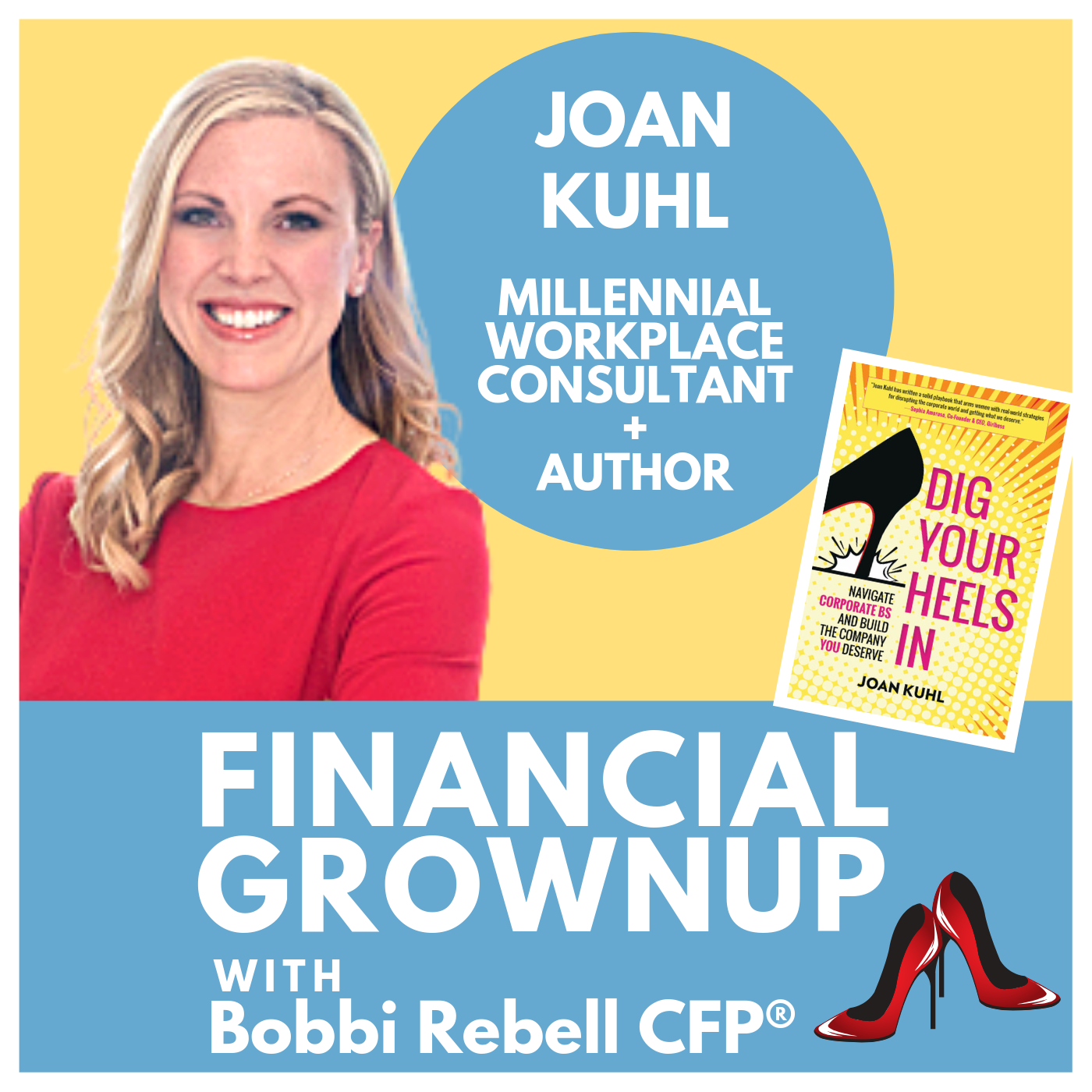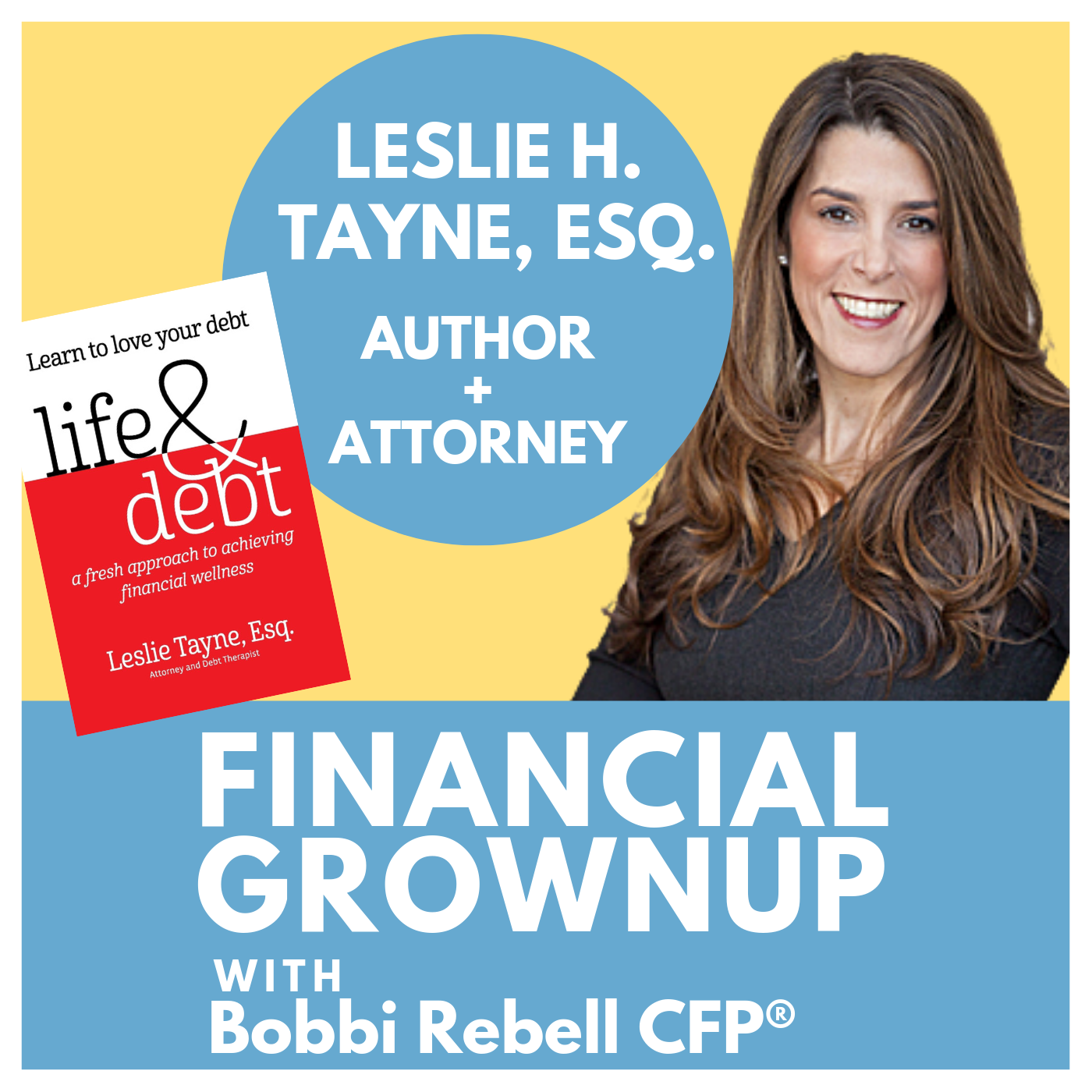Linda Davis Taylor looked like she had it all, but wanted to make more money. An unexpected meeting with the man who became her mentor took her out of her comfort zone, and into a role that would catapult her into a field where she made her mark, and inspired others to follow in her footsteps.
In Linda's money story you will learn:
We are actually the first investment advisory firm that was founded in the country, believe it or not, in 1915. Company's roots go back in this community over 100 years which makes it so much fun to work now with families who are in their fourth generation. We can see the 90 year olds, the 60 year olds, the 40 year olds and the 10 year olds in one meeting and it's just really rewarding to be in such a great community.
And community is really important. In fact a member of your community at the college you were working at 25 years ago is the focus of the money story that you are going to tell us, and it started with an appointment that was really you thought about his future, but it turned out to be about your future. Tell us your money story, Linda.
That's exactly right. This great gentleman who I knew a little bit then who became a lifelong mentor. I'll tell you more later, came into my office I thought to talk about the fact that he was retiring from his firm, and he looked me in the eye and he said, "I'm here because I want to change your trajectory and I want you to come and take over the leadership role in my firm," which was an investment firm which now is Clifford Swan.
Wow, and what were you doing? Explain more about what you were doing at the time and what your mindset was, because you weren't looking to make a change.
No. In fact I said to him, "Mr. Swan, I barely know the difference between a stock and the bond. How would I ever become a leader in the investment firm?"
I was in the higher ed environment, I'd been there for 25 years. I was a college admissions dean, I worked with all kinds of young kids going to college then I moved into philanthropy. I was working at this awesome women's college, where his wife was a graduate, and I was talking to women about philanthropy, which of course is connected with money, but in no way did I have the aspiration to think that I could make a switch from education to finance, and that's what he came in my office to talk to me about.
Was it a question of self-doubt, imposter syndrome? Talk about the gears in your mind at that point? What were you thinking?
I was in a field that I thought was predictable and appropriate for me, but what I realized is that I really wanted to make more money, and he was the person who made me think, "That's great. That's not only okay, that's terrific, and it's great to have an aspiration about money if you're a woman."
How much of your feeling that you wanted to make more money were you holding back, you think, because you were a woman? Were you still tied to the often self-imposed rules that we put on ourselves?
I was the daughter of an entrepreneur, but I was told at that phase and that part of the country it's fine for you to be in education or maybe be a nurse, but you can't go into the family business because that's not what girls do.
Wow. Okay, so what clicked in your mind that you said, "You know what? Maybe I am going to do this."
I thought to myself, "If I don't go out of this office and follow this incredible opportunity ... This man has literally climbed into my office and said, 'How about do this?' If I don't do this now, I don't know if I'll have that opportunity again."
So I knew it was a leap that I needed to take and it was just the universe giving me what I needed to make me take that step.
All right, so what happened? You just quit and left and started ...? What was it like starting?
It was very challenging because I did not have on paper the skills to do that job, so I entered then the financial world, mostly men, they thought, "What is this woman from a college doing here?" So it took me a lot of determination but also his support to be able to make that successful transition.
Having that male mentor, this goes ... I mean, we talk about a lot the importance of men to get women and help women to achieve what they can achieve. But it's not just for women, men play a very important role in this, and the fact that he had the faith in you and pushed you to do what you were capable of I think is important to note.
Absolutely, and probably true in many fields. At the time, this was 20 years ago, it was absolutely true in the field of finance that without a male successful financial entrepreneur, I don't think it could've happened and someone as determined, as passionate as this particular man who became my champion in that transition.
What I now know is that 20 years later, I see myself as a financial mentor, particularly to young women, but he was that to me, every week. And he retired from the firm after six months and he was not there day-to-day, but every week for the next 20 years we had breakfast and what he was doing gradually, over time, is teaching me, teaching me not so much how to be a CEO, but teaching me what it really means to have competence and confidence about money and to be aspirational about it, and I realized that a mentoring is not about one or two meetings, but it's about long-term really being consistent and building in that kind of, again, competence and confidence.
He passed away about a year ago. I miss him every day, but when I think about him I think of this Mark Twain quote that's very simple, and it said, "Keep away from people who try to belittle your ambition, because small people always do that. The really great make you feel that you too can be great."
And I think we all need that. I think a lot of women need that. He did that for me, made me feel competent and confident about having those kind of aspirations, and my dreams and my ideas and my talents were really on target. I just needed to take it up and do it. So he became a lifelong mentor and now I think it's my turn to do that in whatever way I can.
“I was in a field that I thought was predictable and appropriate for me but what I realized was that I wanted to make more money”
In Linda’s money lesson you will learn:
Find a financial mentor. You just have to find one. I think it's still very, very hard, particularly for women, to understand what their own fears or lack of confidence or what they feel about money. The financial industry does not make it easy to understand it, and that financial mentor, not just a mentor in general but someone who we can really be honest with and can tell us things like Mr. Swan did, don't have a lot of debt. The moment you get out of debt is when you really start being financially secure. Things about being careful with your spending, all of these things over time, find a financial mentor.
“I knew it was a leap that I needed to take and it was just the universe giving me what I needed to make me take that step”
In Linda's everyday money tip you will learn:
So my big one is, don't purchase any snacks on the go when you're thinking about those snacks, those extra drinks. It just adds unneeded calories frankly, and it wastes money, so no snacks on the go.
Very well said. Could you give some examples of the temptations that you pass up on? Was there anything that happened that changed your mind that you had an aha moment about this, or have you always been this way?
In the morning before your commute it's tempting to go buy coffee, tea or snack of your choice. When you're in an airport, walk on by, don't get that stuff and take it on the plane. When it's late at night in a hotel, stay out of the minibar, no potato chips, no chocolate chip cookies. Those are the things that tempt me and I just have to say, "No, I don't need it. It's going to be five extra dollars on my bill and 500 extra calories."
“Mentoring is not about one or two meetings. It is about long term really being consistent and building in .. competence and confidence.”
In My Take you will learn:
Here we go. Financial Grownup tip number one: Find mentors early and often. For Linda, she had one that made a huge difference. That doesn't always happen. For most of us it may be several in different stages of our careers and for different purposes.
When I wrote How to be a Financial Grownup, I went on what I now call my mentor-ter, asking successful people that I admire to just meet with me and talk about themselves. The information that I learned was life-changing and it became the foundation for my book and now this podcast.
Financial Grownup tip number two: Linda's everyday money tip is one of my favorites ever because so many of us, and yeah, I'm looking in the mirror, so many of us cave to those little treats especially when we are traveling. So here's one thing that I've learned to do that at least cuts off one major super unnecessary tip and that is, if you're traveling and you're buying food somewhere, you don't necessarily need to buy that bottle of water. If you're buying something else, it's a little weird if you go up if you're not buying anything else, but if you're already buying food, it's kind of okay to go up to the counter and say, "Oh, can I just get a cup with ice and water?"
Most of the time they're pretty happy to give it to you, and especially if you have a kid with you, forget it, they will definitely do it. So try it. You'll usually save five bucks on a bottle of water that is so unnecessary to pay for.
Episode Links:
One of my favorite apps: Blinkist - Summarizes books to just 15 minutes. In fact you can even listen to one minute chunks at a time. They call these blinks. Try it out for FREE here.
www.CliffordSwan.com
Linda’s book The Business of Family: How to Stay Rich for Generations
Check out Linda's website - www.LindaDavisTaylor.com
Follow Linda!
Some of the links in this post are affiliate links. This means if you click on the link and purchase the item, I will receive an affiliate commission at no extra cost to you. All opinions remain my own.










































